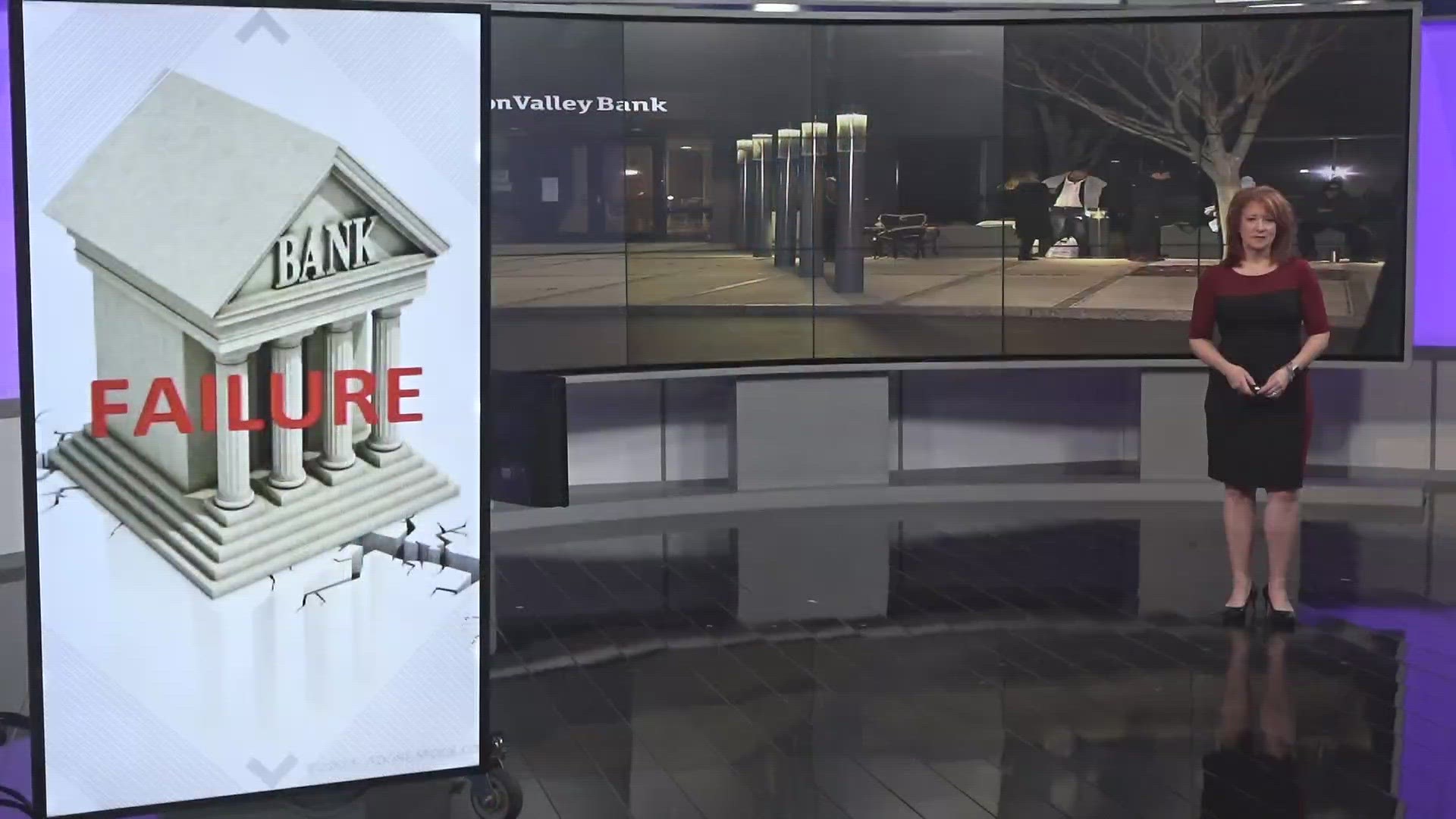GREENSBORO, N.C. — When you hear the words bank and failure, you probably think of a mass of people outside the bank's doors trying to get their money. But only a handful of folks were outside Silicon Valley Bank Monday morning. Why?
“Their primary function was to loan money out to these venture capital start-ups, tech companies. That's where SVB made money, they didn't take a lot of checking and savings accounts and have those set up for everyday folks, so that is a unique difference with them,” said Scott Braddock of Scott Braddock Financials.
He says the collapse of the bank is a textbook on how things fail. Basically, SVB had a lot of cash with all those start-up tech companies.
So, during the pandemic, they bought a lot of government bonds at really low interest.
Then the interest rates shot up, and at the same time, those tech companies wanted to take out their cash versus taking out loans.
The bank had too much tied up in the bonds and to give the money to the companies, the bank had to sell the government bonds, but they had to sell them at a big loss and that got them in trouble.
“That still wasn't enough revenue, there wasn't enough cash on hand, so they went out and tried to secure an additional loan for a few billion dollars and this just really spooked investors,” said Braddock.
The FDIC covers accounts, yours included, up to $250,000. In this situation, the government is going to cover all the losses to the customers who had money in the bank, but not the bank administration or its investors.
The money will be paid from the FDIC Deposit Insurance Fund, which is funded by fees paid by banks, not taxpayers.
“The management of these banks will be fired if the bank is taken over by FDIC. The people running the bank should not work there anymore. Third, investors in the banks will not be protected. They knowingly took a risk, and when the risk didn't pay off, investors lose their money. That's how capitalism works,” said President Joe Biden.
HOW YOU CAN CASH IN
"When SVB went off and sold that U.S. Treasury bonds, they also sold their other positions as well, and to give you an example, they held a large position in Charles Schwab which also owns TD Ameritrade. Again, it was a fire sale, they dumped a lot of stocks and shares because they needed to make money fast and what that did, drove down the stock value of Charles Schwab. The company as a whole is sound and safe, it's good, but when you have a flood of stock like that out there it's temporary," said Braddock.
He says the number one rule of investing is to sell high and buy low, so whenever there is a fire sale, you and I can win and we are actively investing and buying into the market.
HOW CAN YOU KEEP YOUR MONEY SAFE DAY TO DAY?
"The FDIC protects up to one account per title so if you can have an account in your name and one account that is jointly owned so there is a variety there," said Braddock.
Having multiple bank accounts in different banks is not a bad idea. But Braddock says people don't need to panic.
"We don't need to take our money out. we need to realize that from time to time businesses are going to fail, and banks are going to fail. What we need to do as consumers is have a long-term plan that is going to protect us," said Braddock.

